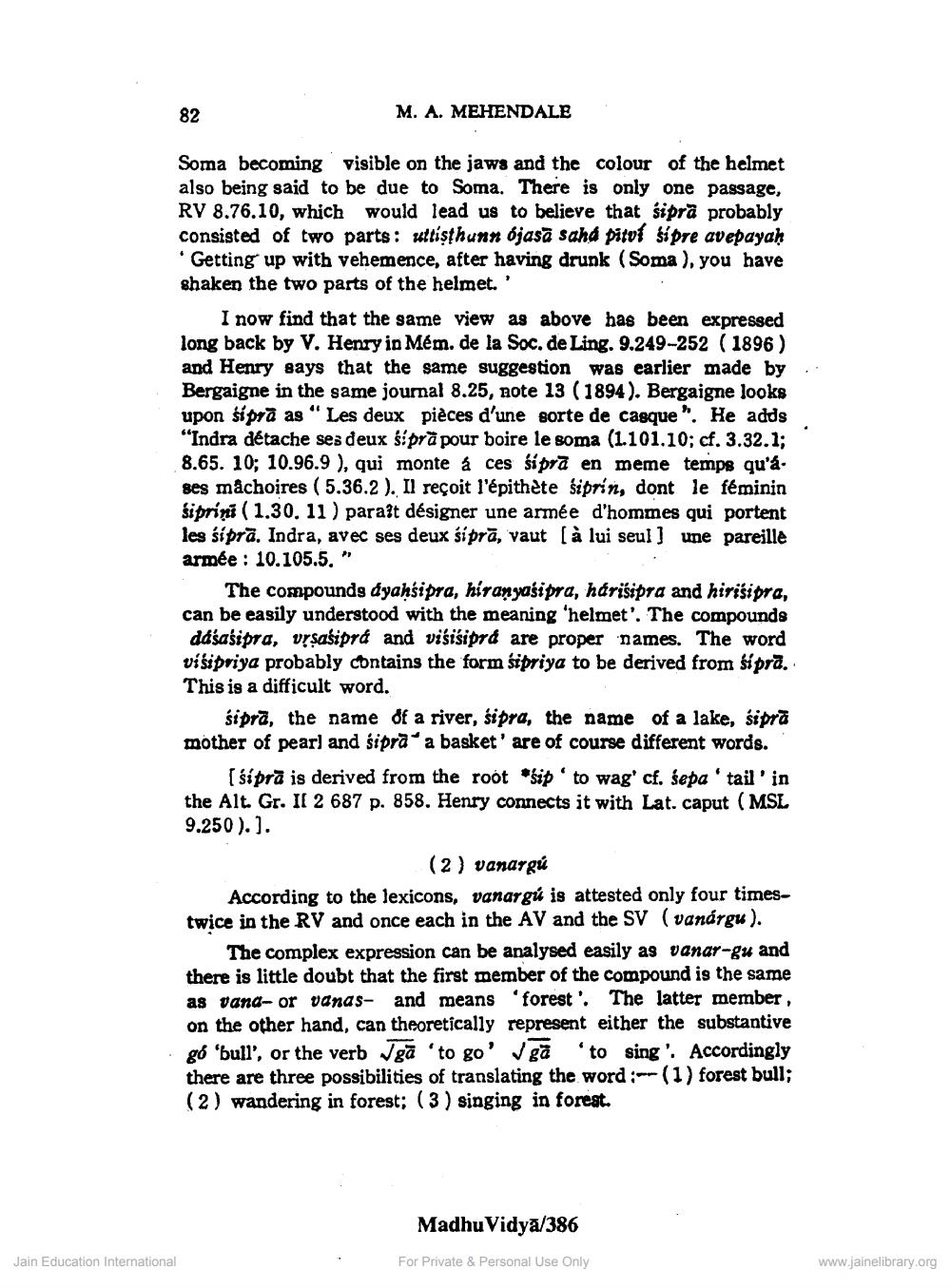________________
82
M. A. MEHENDALE
Soma becoming visible on the jaws and the colour of the helmet also being said to be due to Soma. There is only one passage, RV 8.76.10, which would lead us to believe that siprā probably consisted of two parts: utristhunn ójasa sahá pitot šípre avepayah 'Getting up with vehemence, after having drunk (Soma ), you have shaken the two parts of the helmet.'
I now find that the same view as above has been expressed long back by V. Henry in Mém. de la Soc. de Ling. 9.249-252 (1896) and Henry says that the same suggestion was earlier made by Bergaigne in the same journal 8.25, note 13 (1894). Bergaigne looks upon sípra as " Les deux pièces d'une sorte de casque". He adds "Indra détache ses deux sáprà pour boire le soma (1.101.10; cf. 3.32.1; 8.65. 10; 10.96.9 ), qui monte á ces sípra en meme temps qu'a. ses mâchoires (5.36.2). Il reçoit l'épithète śiprin, dont le féminin sipriņi ( 1.30. 11 ) parait désigner une armée d'hommes qui portent les siprā. Indra, avec ses deux siprā, vaut (à lui seul) une pareille armée : 10.105.5."
The compounds dyahsipra, hirangasipra, hárisipra and hirišipra, can be easily understood with the meaning 'helmet'. The compounds daśasipra, vrsasipra and visisiprd are proper names. The word višipriya probably contains the form sipriya to be derived from śípra. This is a difficult word.
sipra, the name of a river, sipra, the name of a lake, siprā mother of pearl and sipra a basket' are of course different words.
[siprā is derived from the root *sip' to wag' cf. sepa' tail'in the Alt. Gr. Il 2 687 p. 858. Henry connects it with Lat. caput (MSL 9.250). ).
(2) vanargú According to the lexicons, vanargú is attested only four timestwice in the RV and once each in the AV and the SV (vanargu).
The complex expression can be analysed easily as vanar-gu and there is little doubt that the first member of the compound is the same as vana-or vanas- and means 'forest'. The latter member, on the other hand, can theoretically represent either the substantive gó 'bull', or the verb Igā 'to go' ga 'to sing'. Accordingly there are three possibilities of translating the word :-(1) forest bull; (2) wandering in forest; (3) singing in forest.
Madhu Vidya/386
Jain Education International
For Private & Personal Use Only
www.jainelibrary.org




